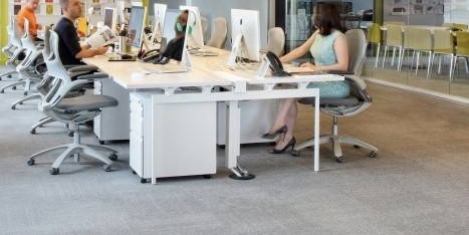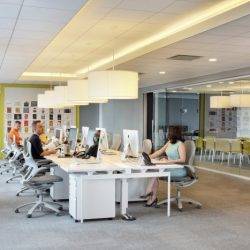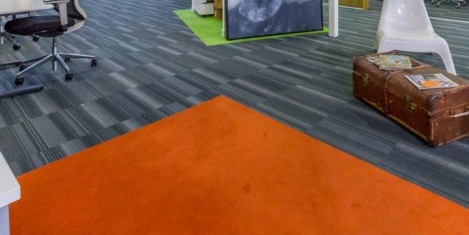March 9, 2017
What the budget meant for the workplace; experts have their say 0
 As has been the case with recent UK Government Budget announcements, Chancellor Philip Hammond’s first Budget addressed a number of issues related to the workplace, technology and infrastructure. It was the first Budget delivered in the post Brexit era and this clearly informed many of the announcements made. While most of the headlines over the past 24 hours have related to the changes to the tax status of the self-employed as a way of raising around £2 billion, the announcements also covered a broad range of topics related to the workplace, HR, technology and property sectors and have drawn an immediate response from key figures in the sector. These include nearly half a billion pounds relief on the vexed question of business rates reforms, a new focus on technical qualifications and a greater investment in 5G and other forms of digital infrastructure. We’ll be having our own say about the implications of the Budget in the near future, but in the meantime, here’s a rundown of the key announcements and the reaction of industry experts.
As has been the case with recent UK Government Budget announcements, Chancellor Philip Hammond’s first Budget addressed a number of issues related to the workplace, technology and infrastructure. It was the first Budget delivered in the post Brexit era and this clearly informed many of the announcements made. While most of the headlines over the past 24 hours have related to the changes to the tax status of the self-employed as a way of raising around £2 billion, the announcements also covered a broad range of topics related to the workplace, HR, technology and property sectors and have drawn an immediate response from key figures in the sector. These include nearly half a billion pounds relief on the vexed question of business rates reforms, a new focus on technical qualifications and a greater investment in 5G and other forms of digital infrastructure. We’ll be having our own say about the implications of the Budget in the near future, but in the meantime, here’s a rundown of the key announcements and the reaction of industry experts.











 Very few organisations are ready to manage a workforce where the latest technologies and people work side by side. Just 13 percent of UK companies are ready to respond to digital disruption and create “the organisation of the future”; despite 88 per cent believing this has become a priority. This is according to the 2017 Deloitte Global Human Capital Trends survey, which tracks the top trends shaping the agenda for HR and business leaders. However, while UK companies believe they are ill-prepared for the change brought by digital disruption, this has not stopped many of them from embracing disruptive technologies. 42 per cent report that they have adopted robotics, cognitive and artificial intelligence (AI) technologies within all or parts of their workforce. Another 42 per cent are running pilots in certain areas of their organisation. But only 16 per cent say they are ready to manage a workforce with people, robots and AI working side by side.
Very few organisations are ready to manage a workforce where the latest technologies and people work side by side. Just 13 percent of UK companies are ready to respond to digital disruption and create “the organisation of the future”; despite 88 per cent believing this has become a priority. This is according to the 2017 Deloitte Global Human Capital Trends survey, which tracks the top trends shaping the agenda for HR and business leaders. However, while UK companies believe they are ill-prepared for the change brought by digital disruption, this has not stopped many of them from embracing disruptive technologies. 42 per cent report that they have adopted robotics, cognitive and artificial intelligence (AI) technologies within all or parts of their workforce. Another 42 per cent are running pilots in certain areas of their organisation. But only 16 per cent say they are ready to manage a workforce with people, robots and AI working side by side.




 The
The 
 Nearly three quarters of European employees would consider career opportunities abroad, with Germany voted the most desirable place to work claims a new study of nearly 10,000 working adults across Europe. According to research by ADP which looked at how employees feel about the future of work, international competitiveness and talent management, European employees have a strong appetite for international work, as almost three quarters (74 percent) would consider other countries for career opportunities. At 21 percent, Germany tops the list of most popular places to relocate, with the United Kingdom (15 percent) and France (12 percent) in second and third place; with North America surprisingly coming in much further down the list in 12th place. Despite their popularity, Germany, the UK and France aren’t particularly strong in any of the areas measured in the survey, such as skills and development, flexible working options and stress in the workplace.
Nearly three quarters of European employees would consider career opportunities abroad, with Germany voted the most desirable place to work claims a new study of nearly 10,000 working adults across Europe. According to research by ADP which looked at how employees feel about the future of work, international competitiveness and talent management, European employees have a strong appetite for international work, as almost three quarters (74 percent) would consider other countries for career opportunities. At 21 percent, Germany tops the list of most popular places to relocate, with the United Kingdom (15 percent) and France (12 percent) in second and third place; with North America surprisingly coming in much further down the list in 12th place. Despite their popularity, Germany, the UK and France aren’t particularly strong in any of the areas measured in the survey, such as skills and development, flexible working options and stress in the workplace.













March 8, 2017
In a crowd of truths, we can discern and reclaim what it means to be human 0
by Neil Usher • Comment, Facilities management, Technology, Workplace design
(more…)